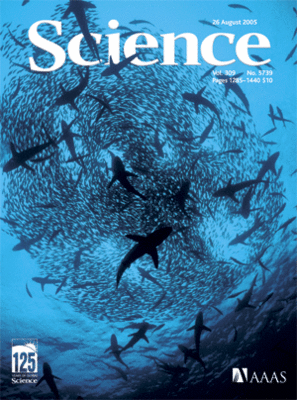Ethanol issues complex, but smarter fuel is a no-brainer Three hundred million years ago, the sun shown down on swampy forests of giant ferns. Just like plants today, those ferns captured a portion of the incoming solar energy to form sugars, starches and other molecules. When the ferns died, some of that solar energy was preserved via burial. Today we dig up those dead tree ferns and call them "coal." Oil comes from a similar source. As an alternative to ancient sources of solar energy, we can grow plants like corn, soybeans, grass or trees and use the solar energy they capture as food or fuel. Essentially we use modern plants as solar panels—the plants capture energy just like a solar cell (though the energy captured by plants is stored in chemical form).
Does a field of corn make an efficient solar panel? Unfortunately, no. When the sun shines down on a field of corn in western Minnesota, at best 2 percent of the solar energy is captured and stored as plant material. When the sun shines on a commercial solar panel, 15 percent of the energy is captured. In addition, solar panels work all year long, not just during the growing season. To get the captured 2 percent out of a corn plant, you need to consume the whole plant—roots, stalks, cobs and kernels. If, like me (and my local ethanol plant) you prefer to consume just the kernels, you leave most of the energy in the field. The automobile fuel made from corn doesn't even utilize all of the energy in the kernels—only sugars and starches contribute to the ethanol end-product.
Can we grow enough corn to run our automobiles? Is corn ethanol the way to reduce our dependence on foreign oil? Some studies suggest that there is a modest net energy surplus in corn ethanol (i.e., the energy in a gallon of ethanol is greater than the energy used to grow the corn and make the ethanol). Other studies (including the only two peer-reviewed studies on the topic) conclude that the net energy balance in ethanol is negative—we would be better off just burning the coal and oil, rather than processing the coal and oil through a cornfield.
Regardless of the current energy balance, corn ethanol production is getting more efficient. At some point (if we aren't already there), it may make energetic sense to turn corn into ethanol. But will corn ethanol then do much to reduce our dependence on foreign oil? No. We don't have enough land to grow the quantities of corn required.
In class, I ask the following homework question: how much land would it take to grow enough corn to fuel all the automobiles in the United States? The answer varies depending on underlying assumptions, but a rough ballpark figure is 20 times the area of Minnesota planted as corn. No lakes. No forests. No sprawling suburbs. Just corn.
My student's discover what the federal government already knows. In 1997 the General Accounting Office reported that "ethanol's potential for substituting for petroleum is so small that it is unlikely to significantly affect overall energy security." The recently passed federal energy bill calls for 8 billion gallons of ethanol production by 2012. Eight billion may sound like a lot, but Americans used over 134 billion gallons of gasoline last year, and gasoline demand is rising.
Why do we make ethanol from the sugar and starch in corn kernels? For one, having already induced farmers to grow a surplus of corn (via agricultural subsidies) the government pays to create a market for the excess corn. We taxpayers are charged twice: first to grow the corn, and then to convert it to ethanol (via additional subsidies). Then we taxpayers are mandated to buy the stuff. A law recently passed in Minnesota will require that gasoline sold in our state contain 20 percent ethanol.
Another reason why we make ethanol from the sugar and starch in corn kernels is because that is all current technology will allow. Although much of the energy in plants is stored as cellulose, no current production facility can use the cellulose to make ethanol. When (and if) commercially viable production of ethanol from cellulose becomes possible, the energetics of ethanol production may change dramatically. At that point, it will also stop making sense to use corn. Other plants (like switch grass) are far more desirable than corn as a source for cellulose-based ethanol.
When the age of cellulose-based ethanol arrives, and we stop growing corn and start growing grass, will the age of energy independence have arrived? Not unless we curb our growing demand for gasoline. Fields of grass, like cornfields, make lousy solar collectors. If we are to replace a significant amount of imported gas with cellulose ethanol, we need to start driving much more efficient cars.
A few weeks back, Minnesota's U.S. Sen. Mark Dayton visited our town to promote ethanol as a solution to our dependence on foreign oil. He was driving a Ford Explorer. I do not mean to denigrate those who drive SUVs and trucks out of necessity, but nothing about being a U.S. Senator requires an SUV.
Assuming that Senator Dayton's E85 Ford Explorer is a 2004, two wheel drive model, the EPA predicts 12 miles to the gallon in city driving and 16 on the highway. If we are going to truly get the most out of our ethanol, we need to change our attitude. Drive a truck when you need a truck, but drive a small car when a small car will do. We ask a lot from the plants that collect solar energy on our behalf. They feed us. If we want them to help feed our cars as well, we need to meet them half way.







